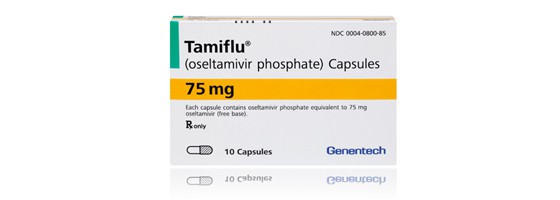
A leading researcher has called for doctors to boycott the use of Roche’s products until the company publishes all available data related to its flu drug Tamiflu (oseltamivir phosphate).
Peter Gøtzsche, leader of the Nordic Cochrane Centre – part of the Cochrane Collaboration health research body, also called for European governments to sue the company for withholding data concerning the drug’s effectiveness, despite concerns from regulators that it had not been shown to reduce complications in people with influenza.
“Roche has withheld data that purports to show that Tamiflu has dramatic effects,” said Gøtzsche. “We all wonder why it is so difficult to get these data from Roche and why Roche has not published them, if it is really true that they show these effects.”
“As far as I can work out, Tamiflu is likely not any better than paracetamol.”
Gøtzsche made his comments in response to an open letter from the British Medical Journal to John Bell, regius professor of medicine at Oxford University and a Roche board member, that claimed the company was keeping evidence of Tamiflu’s effectiveness and safety “hidden” and called for Professor Bell to use his influence to encourage Roche to publish all its data on the drug.
This letter was published alongside an editorial from the BMJ’s editor Fiona Godlee announcing that the Journal would only publish clinical trials of drugs for which full data is openly available.
Roche responded to the letter saying it “does not accept or agree” with its content regarding the company’s transparency, and that Roche “complies with all legal requirements regarding the publication of data”.
Furthermore, Roche’s letter states it had provided the Cochrane group with 3,200 pages of information “enabling their questions to be answered” and that a further request for information was denied because the researchers “declined to sign a confidentiality agreement”.
This is disputed by the Cochrane group, according to the BMJ, with researchers stating they were never offered a confidentiality agreement at the time of the further request.
In addition, the BMJ also challenged Roche’s claim in its letter that it had made full data availability to authorities.
“[T]he Cochrane researchers say the European Medicines Agency has confirmed to them that it does not have some modules of the studies,” said the BMJ in a statement.




